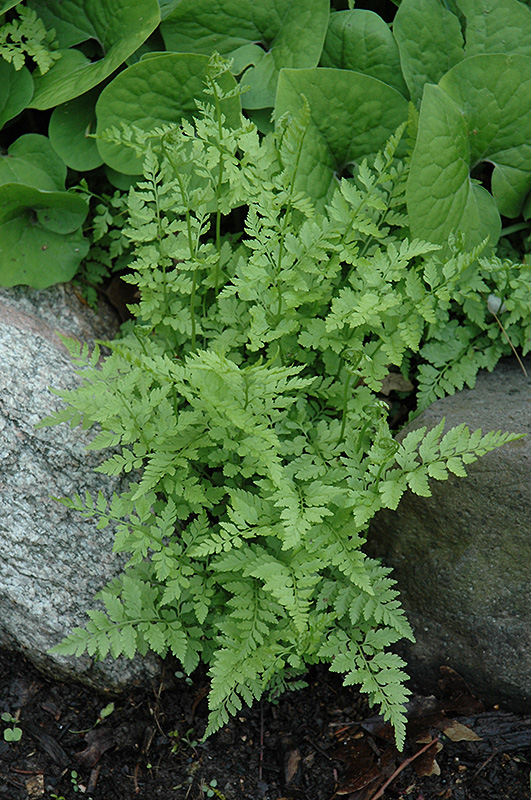Plant Finder
Height: 12 inches
Spread: 12 inches
Sunlight:
![]()
![]()
Hardiness Zone: 3a
Other Names: Aspidium fragilis
Description:
Fern fronds add beautiful texture to shade gardens; add extra peat and lime to the soil and grow in deep shade for best performance; turns brown with low water and high heat, water regularly to keep green
Ornamental Features
Brittle Bladder Fern is primarily valued in the garden for its cascading habit of growth. Its attractive ferny leaves remain light green in color throughout the year.
Landscape Attributes
Brittle Bladder Fern is an herbaceous evergreen fern with a shapely form and gracefully arching fronds. It brings an extremely fine and delicate texture to the garden composition and should be used to full effect.
This is a relatively low maintenance plant, and is best cleaned up in early spring before it resumes active growth for the season. Deer don't particularly care for this plant and will usually leave it alone in favor of tastier treats. It has no significant negative characteristics.
Brittle Bladder Fern is recommended for the following landscape applications;
- Mass Planting
- Rock/Alpine Gardens
- Border Edging
- General Garden Use
- Naturalizing And Woodland Gardens
Planting & Growing
Brittle Bladder Fern will grow to be about 12 inches tall at maturity, with a spread of 12 inches. Its foliage tends to remain dense right to the ground, not requiring facer plants in front. It grows at a slow rate, and under ideal conditions can be expected to live for approximately 10 years. As an evegreen perennial, this plant will typically keep its form and foliage year-round. As this plant tends to go dormant in summer, it is best interplanted with late-season bloomers to hide the dying foliage.
This plant does best in partial shade to shade. It does best in average to evenly moist conditions, but will not tolerate standing water. It is not particular as to soil type or pH. It is somewhat tolerant of urban pollution. Consider applying a thick mulch around the root zone in both summer and winter to conserve soil moisture and protect it in exposed locations or colder microclimates. This species is native to parts of North America. It can be propagated by division.




